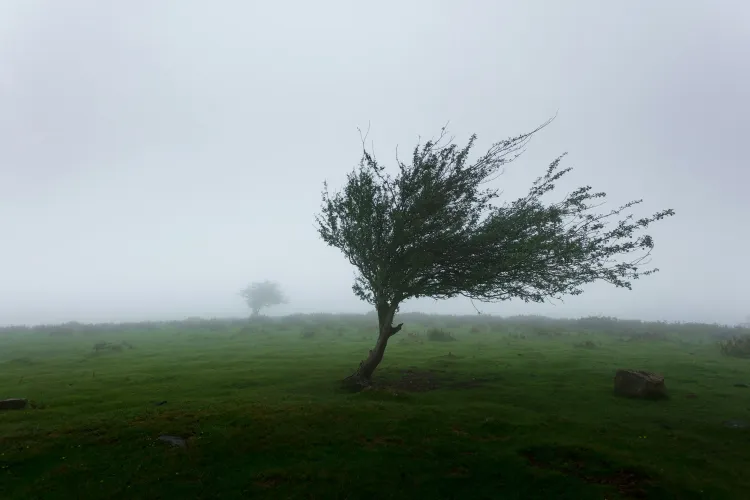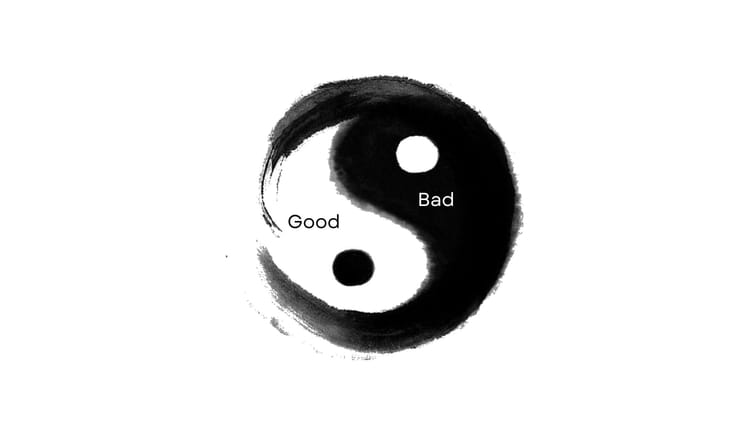The Journey of 1,000 Miles Starts with Where You Are Standing

In the last week of March, I had a flash of insight.
After two months of trying to find the right naming for my virtue ethics philosophy, “Queering The Way” came out of nowhere. I immediately wrote it down, followed by the description, “Navigating virtue ethics and human-hearted leadership through the margins of the Tao Te Ching.”
Have you ever found yourself immersed in a book or text so profound that it reshapes your perspective on life?
For the last 4–5 years, I have been reading and re-reading multiple translations of the Tao Te Ching. I’ve hinted that I’m writing a book about it — a virtue ethics and a human hearted humanitarian approach to leadership.
In simpler terms, I’m writing about self mastery, self-awareness, and the self-leadership required to show up virtuously in the world, recognizing that you not only have a voice, but that you are one among many, we are all connected, and we are all equally deserving of dignity, understanding, and acceptance.
A core principle underpinning the Tao Te Ching is that no one person is better than any other.
It is unfortunate and tragic that this simple idea needs to be repeated and justified over and over again. There is absolutely no precedent in the natural order of the natural world for racism, prejudice, or ideological constructs like religion, organized government, and other forms of social and hierarchical organization.
Have you ever sat on the bank of a river, gazing at the water flowing downstream?
Water flows by itself so.
The watercourse is not something we can affect by our will. Yes, we can build a dam or divert a river, but we cannot control how water moves. We cannot will it to go faster or slow down. Water’s nature is to flow in accord with gravity — another force we cannot see with the naked eye.
How this applies to caring for humanity is in the awareness that we can only take personal responsibility for our actions.
When we embrace this idea and lead ourselves in such a way that other people are inspired by our actions, then we have the possibility to influence the way people think and act. It is absolutely false to think you can control other people — you cannot force change on others.
Yes, you can indoctrinate people, but within the confines of intellectual brainwashing, there is still the individual will to act. It appears that the incomprehensible and violent actions of people who are part of radicalized cults and fundamentalist religious organizations are due in part to the external suppression of individual will. Complete control by someone else of your individual freedoms is not normal and against human nature.
For an expanded discussion on effects of extremism on humanity, read my article, Why Are Rightwing Extremist Groups So Secretive?

How much should we tolerate the intolerance espoused by radicalized cults and fundamentalist religions?
How do we change those peoples minds?
Metaphorically, it starts at the level of the heart. In practice, it starts by connecting with and appealing to people’s emotions around mutual acceptance, connection, and understanding. This is what the virtue of human heartedness seeks to accomplish.
For me, this is where the Tao Te Ching shines light on a way of navigating life that is simpler, more down to earth, and based on the same observable laws of nature of which we are a part.
What I find fascinating is that the Tao has always been supportive of people living on the margins, and providing them with a way to create harmony out of chaos, and connection from disconnection.
According to Wing-Tsit Chan,
“Throughout Chinese history, Taoism has always been the philosophy of the minority and the suppressed, and that secret societies, in their revolt against oppressive rulers, have often raised the banner of Taoism.” (1)
The reason is profoundly simple:
The Tao Te Ching requires the reader to think for themselves.
Through aphorisms, metaphors, poetic-like brevity, and without any storytelling, we have to ponder the text to understand its meaning. The Tao we have today consists of 82 verses, which might not be the complete text, is perhaps one of the shortest so-called spiritual texts ever, and one of the most challenging to understand.
Comprehending and discerning the philosophy of the Tao is an evolution of one’s moral and ethical thinking. At no point will you ever complete the exercise! It’s not like you will put down the text one day and say, “Now I understand everything! There’s no need for me to ever read this again.”
The act of thinking for oneself is why the Tao Te Ching scares religious orthodoxy.
The Tao requires the reader to think for themselves. It allows the reader to question what they see happening in society through government, social traditions, and norms compared to the patterns one observes in nature — through the natural order of things.
If the individual can see through the limitation of binary thinking and polarizing ideas, that individual is a threat to an oppressive government or fundamentalist religion.
It is part of my mission to help people think critically for themselves and to question what they believe to be true.
More to the point, I challenge people to question critically the validity and truthfulness of every religious system. Sure, there might be some religions that unequivocally support human dignity and freedoms. The problem I have with religions is that they can be too easily radicalized into fundamentalist thinking and taken over by a single individual who people look up to like a God.
Do We Need Religions to Act Morally or Ethically?
We don’t need a god or gods in the sky to act for the betterment, understanding, and dignity of every human being and all life on this planet.
Furthermore, we need to think for ourselves and make our own decisions. We require frameworks that support dialectical conversations without the threat of someone wanting to beat your head in because you disagree with their blind faith. This starts with the education of children and respecting the fact that children are smarter than many parents give them credit for.
If you treat children like children, are you disenfranchising them?
What I’m not saying here is that you shouldn’t let kids play.
What I am saying is that we shouldn’t assume children can’t understand complex topics.
The challenge for an adult or parent is to know what they believe in and stand for clearly enough, so that they can explain it to their children in the simplest of terms. If the child doesn’t understand right away, then come back to the topic when they ask you a question related to the subject.
Closing Thoughts: On the Issue of Contention
I am easily prone to anger and outbursts. I don’t enjoy this characteristic about myself. However, I am more practiced at noticing what will cause me to become overtired, overwhelmed, or unwell, and then lose my ability to be fair, logical, and respectful. This never feels good.
Losing my temper is hard on my mind, my body, and my energy.
Something I put into practice with my writing at the end of 2023, was to avoid writing a purely angry and contentious article.
Instead, when a sentence becomes too angry and declarative, I try to find a way to express my idea or opinion in a direct and fair way. “Queering The Way” is as much for me as for anyone else who wants to practice a virtue ethics of human-heartedness and be the change they hope to see in the world. I intend to help people think critically and share practices and tools to better manage the emotions that put them into stress and threat and cause outbursts, arguments, prejudice, or worse.
If I can better manage this practice for myself — with my skills as a coach trained in the neuroscience of behavioural change, and my studies of over 20 translations of the Tao Te Ching — I will then be able to impart this wisdom and frameworks for you to do the same.
Further reading
- The Threat of Religious Extremism and Radicalized Individuals to the Common Good
- Why Are Rightwing Extremist Groups So Secretive?
- Collectivism and Religion Versus Individualism and Ideology
(1) Chan, Wing-Tsit, trans. “The Way of Lao Tzu (Tao-te Ching).” New Jersey: Prentice-Hall, 1963






Member discussion